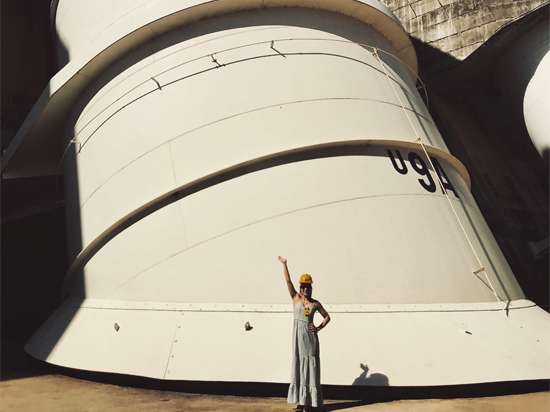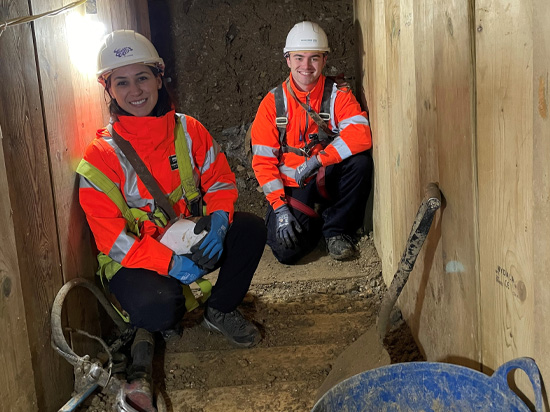Celebrating Wessex Water’s female engineers
To mark International Women in Engineering Day on 23 June, we caught up with Fran Thums from our sewer rehabilitation team, to learn more about how her role, her achievements and developing her career at Wessex Water.
What inspired you to become an engineer?
I always loved science and maths and problem-solving was one of my best skills at school, so it was a natural choice for me. I'm a very curious person and I generally like to know how things work, how they interact together and the impact it has on society. When I looked around and realised engineering is behind it all, I had no doubts I wanted to be part of it as well.
How did your engineering career start?
I decided during my second year at university to go for a placement year in the industry, and I knew that the programme would not only help me for future job applications, but it would also expand my practical knowledge. I originally started my degree in Environmental Engineering and moved to Civils later on, which was the reason I chose the water industry.
I applied for a job at Wessex Water, completed my one-year placement and have been progressing within the company since. I also completed my master’s degree in Structures through the company.
Describe your role at Wessex Water?
I work in the sewer rehabilitation team, delivering schemes from outline design to construction. I am involved in the project management, programming, risk analysis, work proposal, contractor supervision, scheme finance and design.
I also take charge of special projects, involving pressure liners, structural assessment of large diameter sewers and innovative surveys.


Tell us more about some of the successful projects you have worked on.
I have been involved in a large number of projects since I joined Wessex Water, working initially in the design team carrying out high-level assessment on sewerage flooding.
I carried out a salinity (concentration of salt in the water) study, which was affecting the processes at Avonmouth Water Recycling Centre (WRC). This involved installing a series of conductivity monitors along the tidal River Avon, collecting data and assessing the results to identify where salty water had infiltrated the sewers. That allowed the most critical areas to be repaired and improved the performance at the water recycling centre. I won the Pipeline Industry Guild presentation competition with this scheme.
Alongside my colleagues in the sewer rehab team, I recently successfully completed the twin lining of rising mains serving the south of Bridgwater. By completing the scheme on time and budget, we made a saving of around 40 per cent for the company, compared to the original proposal of horizontal directional drilling.
What do you enjoy about being an engineer?
I feel I can make a change, create something new or improve what’s already there. It’s great for me because I enjoy what I do, and it also gives me the ability to work with a diverse group of professionals. I have the opportunity to learn the technical and industrial aspects of engineering, work with various data, manage my own schemes, train new engineers, and improve the process when required.
What is your advice to someone considering a career in engineering?
Engineering gives you the opportunity to work in different areas and be involved in a range of projects. In my opinion, it is one of the most fulfilling careers, where you can use your creativity every day, be innovative, hands-on, design and build things that only few people in world have done, and yet be used for so many others.
What does the future of engineering look like?
With population growth, there will certainly be more demand for infrastructure, as well as the maintenance of existing assets and preparing sites for development.
Engineering will always be in high demand. The drive for doing things differently, as well as sustainability, cost efficiency and environmental impact, will also drive the need for more innovation, improved technology, enhanced systems, and alternative ways of working. Engineering has always been a key part of it and will continue to be so.

